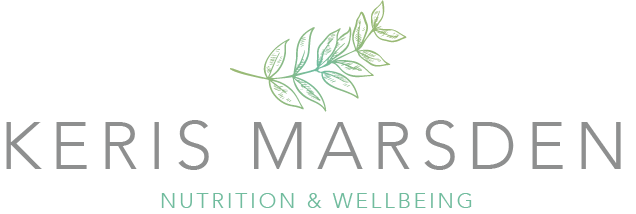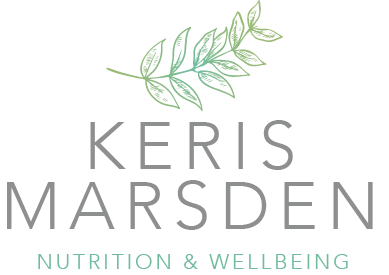What to eat to gain muscle
No matter what your health or fitness goal you should be thinking about maintaining and gaining muscle mass.
Six pack aspirations aside for a second, the benefits of muscle mass go way beyond ensuring you look good on the beach.
Research confirms muscle mass:
Improves metabolic health, hormone health and blood sugar management
Optimises cognitive function
Enhances exercise performance, both strength and endurance capacity
Improves bone density and musculoskeletal health
Muscle becomes more important with age as the risk of sarcopenia (loss of lean mass) increases.
Sarcopenia brings an increased risk of weight gain, estimated to be 3.3lbs annually.
This isn’t an inevitable part of ageing and is easily prevented when you make an effort to sustain the gainz.
Muscle building tips
When it comes to building muscle, protein is obviously essential. However, truly optimising your health and muscle mass simultaneously will take more than a few protein shakes.
The following tips will ensure your muscle building meals help you truly capitalise on the benefits of bigger biceps:
Prioritise a wholefoods diet first
Ideally consume macronutrients (sources of protein, carbs and ft)that contain micronutrients (vitamins and minerals). This includes meat, fish, eggs, poultry, dairy, wholegrains, legumes, fruits, vegetables, nuts, seeds and healthy oils, e.g. olive oil, coconut and avocado.
The vitamins, minerals and antioxidants in these sources of protein, carbohydrates and fats support faster muscle gain and make muscle mass easier to retain.
Consume an appropriate calorie intake
You can begin to change your fat: muscle ratio (known as body recompositioning) by consuming more protein and exercising. However, if you’re overweight a calorie deficit will still be necessary to help reduce extra body fat to lose.
You may want to use an app like Cronometer to track your intake and make some intake and expenditure adjustments.
Personalise your protein intake
All studies confirm a higher protein intake supports an increase and retention in lean mass, including muscle. Combining this with a progressive, resistance training programme (I highly recommend my other half Matt Whitmore for this) to continually overload the muscle and promote growth will also be beneficial.
Most individuals’ needs are covered by consuming 1.6–2.4 g/kg of protein daily.
Working Example : 80Kg Male
Lower end : 128g protein daily
Upper end : 192g protein daily
Protein powders or amino acid supplements can also be convenient and helpful to meet your requirements.
Load up on leucine
Certain amino acids can also stimulate muscle protein synthesis, this means they kickstart the muscle building process (like a key starting a car). Leucine is especially helpful for this and found in whey protein, chicken, turkey, eggs, fish and dairy. Methionine and cysteine are also beneficial and also found in whey protein, dairy, eggs, poultry and fish.
Protein needs on a plant based diet
You can still obtain your protein requirements on a vegetarian or plant-based diet, it just requires a little more attention to detail.
Eggs, whey protein, dairy and soy provide complete proteins for vegetarians with all the essential amino acids the body needs.
Plant based proteins from grains and legumes lack certain amino acids (so are not considered complete proteins), however, these can be combined to make a complete protein.
The absorption of plant proteins in the digestive system is lower, so greater amounts may be required.
Plant based proteins also lack the amino acids leucine, methionine and cysteine mentioned earlier so supplemental leucine or essential amino acids can help work around this.
Carbohydrates and muscle mass
It’s still possible to build muscle on low to zero carb diets but if they work for you metabolically, they can be a muscle building bonus.
Carbohydrates are stored inside muscle as glycogen, they increase the size of your muscles and their energy capacity, enabling you to train at greater intensities for longer.
Research shows if you’re consuming the appropriate calorie intake, carbohydrates will help you increase muscle mass. Recommendations are around 3–10 g/kg/day for people engaging in a regular exercise program, however, these may need to be increased to 5–12 g/kg/day, if training at a greater intensity or >12 hours a week.
What to ditch for more muscle
Anything that lacks nutritional value, easily leads to overconsumption (so you gain bodyfat) or anything that means you skip the gym because it results in a hangover or energy crash.
The following are helpful to reduce:
Processed and refined foods
Eating out frequently (protein servings are often lacking and poor quality fats and carbs are added)
Takeaways
Alcohol
Sugar sweetened beverages
Rest day versus training day
The important thing to increase muscle mass is consistency. Follow a regular meal routine with positive protein balance, high quality macronutrients and avoid overconsumption.
Prioritise training that involves progressions in strength and endurance capacity to stimulate muscle adaptations.
An additional small meal, snack or protein shake on training days will be adequate to cover your training needs.
And do this daily …
Keep it simple.
Results are achieved and sustained through consistency.
With any health goal it’s essential you find an approach that is both convenient and a realistic fit for your lifestyle.


